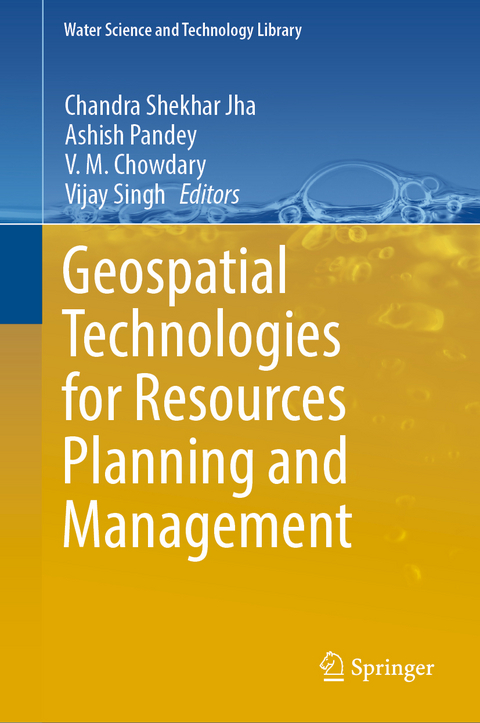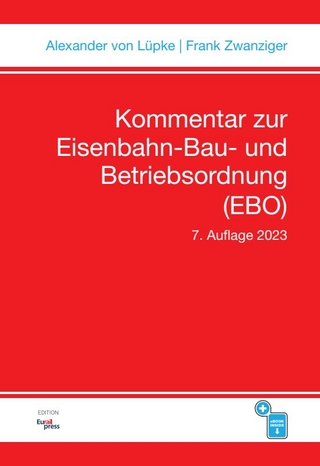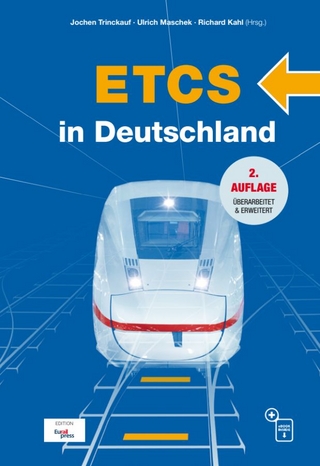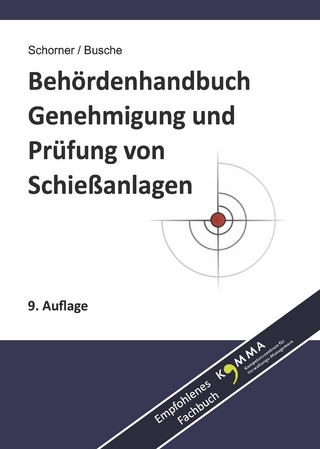
Geospatial Technologies for Resources Planning and Management
Springer International Publishing (Verlag)
978-3-030-98980-4 (ISBN)
This book focuses on the application of geospatial technologies for resource planning and management for the key natural resources, e.g. water, agriculture and forest as well as the decision support system (DSS) for infrastructure development. We have seen in the past four decades that the growing complexities of sustainable management of natural resources management have been very challenging. The book has been written to leverage the current geospatial technologies that integrate the remotely sensed data available from various platforms, the precise locational data providing geospatial intelligence, and the advanced integration tools of Geographical Information Systems (GIS).
Geospatial technologies have been used for water resources management employing geomorphological characteristics, analysis of river migration pattern, understanding the large-scale hydrological process, wet land classification and monitoring, analysis of glacial lake outburst flood (GLOF), assessmentof environmental flow and soil erosion studies, water quality modelling and assessment and rejuvenation of paleochannels through groundwater recharge.
Geospatial technologies have been applied for crop classification and mapping, soil moisture determination using RISAT-1 C-band and PALSAR-2 L-band sensors, inventory of horticulture plantations, management of citrus orchards, crop yield forecasting, rice yield estimation, estimation of evapotranspiration and its evaluation against lysimeter and satellite-based evapotranspiration product for India to address the various issues of the agricultural system management.
Geospatial technologies have been used for generation of digital elevation model, urban dynamics assessment, mobile GIS application at grass root level planning, cadastral level developmental planning and e-governance applications, system dynamics for sustainable development, micro-level water resources planning, site suitability for sewage treatment plant,traffic density assessment, geographical indications of India, archaeological applications and disasters interventions to elaborate various issues of DSS for infrastructure development and management.Geospatial technologies have been employed for the generation and reconciliation of the notified forest land boundaries, and also the land cover changes analysis within notified forest areas, forest resource assessment, management and monitoring and wildlife conservation and management.
This book aims to present high-quality technical case studies representing the recent developments in the "application of geospatial technologies for resource planning and management". The editors hope that this book will serve as a valuable resource for scientists and researchers to plan and manage land and water resources sustainably.
lt;p> Dr. Chandra Shekhar Jha has an M.Sc and Ph.D. (1990) degree from the famous Ecology School of BHU, Varanasi. Currently, he is an Outstanding Scientist and Chief General Manager, Regional Centres, National Remote Sensing Centre, Hyderabad. He joined the then NRSA in 1990 and has been contributing significantly in Geospatial Technology and applications majorly for the sustainable management of forest and environmental resources, especially on advanced methodologies for ecological monitoring, development of national databases, carbon cycle research, and ecological modeling. Dr. Jha's contributions for the National Assessment of Biodiversity Characterization at the Landscape level are significant. He also led the team for the Alert system development for National Forest Fire and annual Forest Loss.
As a Coordinator of ISRO's National Carbon Project (NCP), Dr. Jha leads a large team of research scientists addressing the various components of carbon and water cycle using multiple remote sensing sensors, a network of eddy covariance flux towers, and process models.
Currently, Dr. Jha focuses on Geospatial applications for rural development and spatial planning. Dr. Jha has guided 10 Ph.D. theses under his supervision. He has also served large numbers of National Committees of Govt Of India Ministries. He is the recipient of several national and international awards and honours.
Prof. Ashish Pandey did his B. Tech. in Agricultural Engineering from JNKVV, Jabalpur and obtained M.Tech. in Soil and Water Engineering from JNKVV, Jabalpur. He received Ph.D. in Agricultural Engineering from IIT Kharagpur. Prof. Pandey joined IIT Roorkee in 2007 and is presently working as Professor and Head at the Department of WRD&M, IIT Roorkee. His research interests include Irrigation Water Management, Soil and Water Conservation Engineering, Hydrological Modeling of Watershed, Remote Sensing and GIS Applications in Water Resources. He guided 10 Ph.D. and 85 M.Tech. students at IIT Roorkee. He published 184 research papers in peer-reviewed and high-impact international/national journals/seminars/conferences/ symposia. He has also co-authored a textbook on "Introductory Soil and Water Conservation Engineering".
Prof. Pandey also served as Guest Editor for two issues of J. Hydrologic Engineering (ASCE). He is Editor, Indian J. Soil Conservation. His laurels include Eminent Engineers Award-2015 given by the Institute of Engineers (India), Uttarakhand State Centre, DAAD scholarship and ASPEE scholarship. He was offered the prestigious, JSPS Postdoctoral Fellowship for Foreign Researchers, Japan, and BOYSCAST fellowship of DST, GOI. He is a Fellow member of (1). Institution of Engineers (India); (2). Indian Association of Hydrologists (IAH) and (3). Indian Water Resources Society (IWRS).
Dr. V.M.Chowdary did B. Tech. (Agricultural Engineering) from A.P. Agricultural University, Hyderabad and M.Tech from G.B.Pant University of Agriculture and Technology. He obtained Ph.D in the field of hydrological sciences from Indian Agricultural Research Institute, India and carried out JSPS Post-Doctoral research at Kyoto University, Japan. Currently, Dr. Chowdary is Director, MNCFC, Department of Agriculture, Cooperation & Farmers Welfare, Ministry of Agriculture & Farmers Welfare, Government of India, New Delhi. His research career for more than 2 decades in ISRO as a Scientist focuses on the application of state-of-the-art geospatial technologies for land and water resources management with an emphasis on agricultural water management, hydrological modeling, non-point source pollution studies, regional-scale water budgeting, Integrated watershed management, Soil erosion modeling, environmental monitoring, and GIS-based DSS with a multidisciplinary approach. He developed a unique geospatial modelling
Geospatial Technology for Geomorphology Mapping and its Applications.- Geospatial technology for estimation of geomorphological characteristics of an ungauged watershed.- Long Term Analysis of River Migration Pattern using Geospatial Techniques - A case study of upper part of the Ganga River, India.- Space borne Scatterometers for understanding the large-scale land hydrological processes.- Wetland Classification and Monitoring Using Time Series Earth Observation Data and Machine Learning Algorithm: A Case Study in Upper Ganga River Stretch.
| Erscheinungsdatum | 26.05.2022 |
|---|---|
| Reihe/Serie | Water Science and Technology Library |
| Zusatzinfo | VIII, 750 p. 378 illus., 351 illus. in color. |
| Verlagsort | Cham |
| Sprache | englisch |
| Maße | 155 x 235 mm |
| Gewicht | 1298 g |
| Themenwelt | Naturwissenschaften ► Geowissenschaften |
| Schlagworte | Agriculture Management • Forest management • Geospatial Technology • India • Infrastructure management • water resources |
| ISBN-10 | 3-030-98980-1 / 3030989801 |
| ISBN-13 | 978-3-030-98980-4 / 9783030989804 |
| Zustand | Neuware |
| Haben Sie eine Frage zum Produkt? |
aus dem Bereich


